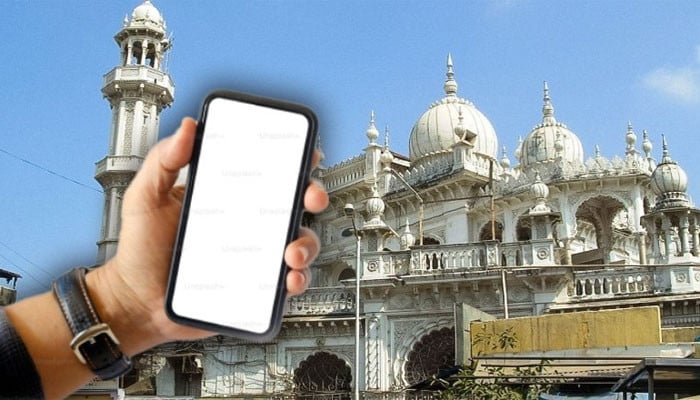India’s Mosques Find Alternative Technological Solution to Loudspeaker Ban
Mobile Application for Azan Introduced in Mumbai Mosques
New Delhi (Web News) – In the Indian state of Maharashtra, where the use of loudspeakers in mosques has been banned, local Muslims have found an alternative technological solution. Following the restriction on loudspeakers in the state’s capital, Mumbai, mosques have started using a mobile application to deliver the azan (call to prayer).
According to Indian newspaper The Hindu, police in Mumbai prohibited mosques from using loudspeakers, prompting mosque administrators to adopt modern technology. Around half a dozen mosques across Mumbai have started using an application called “Azan Online”, which allows worshippers to hear the azan in real time.
The application was developed by Muslim IT experts from the state of Tamil Nadu. It enables users to hear the azan exactly at the prayer time. Mosques must register through the app, after which worshippers residing near the registered mosques can receive the azan in real time on their mobile phones at the designated times.
As part of the app’s features, individual worshippers must also register themselves, specifying their area and mosque name. Once registered, they receive the azan on their mobile phones at the appropriate time.
It’s worth noting that the campaign against the use of loudspeakers in Mumbai was initiated by Kirit Somaiya, a member of the Bharatiya Janata Party (BJP). He linked the use of loudspeakers in mosques to noise pollution and claimed that, as a result of his campaign, over 1,500 loudspeakers have been removed from mosques.
In response to this campaign, Muslim scholars took the matter to the Bombay High Court, which ruled in January 2025 that the limited use of loudspeakers in mosques does not constitute noise pollution. The court stated that if the sound level is up to 55 decibels during the day and 45 decibels at night, it does not qualify as noise pollution.
Despite the court’s decision, Mumbai police allegedly began pressuring mosque administrators and blackmailing them to abandon the use of loudspeakers entirely. As a result, mosque administrators considered the use of the application a better and more viable option.

